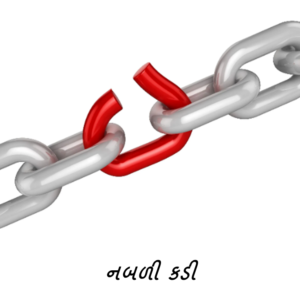
Akhil Bhartiya Kutch Kadva Patidar Samaj
A central organisation of Kutch Kadva Patidar Sanatan community

Akhil Bhartiya Kutch Kadva Patidar Samaj
A central organisation of Kutch Kadva Patidar Sanatan community
Translation Status: Pending – To Review
12. Morally pure life: About 550 years ago today, the Kutch Kadwa Patidar community lived a life of happiness, peace and prosperity in the areas of Unjha, Ahmedabad, Veergam, Anand, etc. Their morally pure and excellent social, family, religious, and spiritual life left no room for vices like lies, deceit, and fraud.
Greatness can sometimes be accompanied by flaws. According to their beliefs, they led a life with such high ideals that as time passed by, they lost the ability to recognize even the simplest vices such as lies, deceit, fraud, conspiracy, etc. Their way of living was based on the original Sanatan Hindu religion, which was singularly good. Similarly, the social system was also equally righteous to such a great extent that any individual who engaged in vice couldn’t live with self-respect in society. Instead of living in shame, people chose to avoid all immoral acts. They led a simple and clean life.
13. Main reason behind weakening: They had a life that was too comfortable and sanitized. Just as consuming too much salt can harm the body, excessive indulgence in anything can be toxic. Only moderation can ensure that something is beneficial for the body. Similarly, their simplicity was taken to an extreme, which proved to be fatal. Consequently, the community became excessively “naive and good”.
They became so naive that they stopped thinking about religion with discretion. In the name of religion, if a fraudulent person lied to them, they would consider it to be true [88:Page 17].
The peak of naivety reached to such an extent that they started believing in the principle “If we have not harmed anyone, then no one will harm us”. Many people must have heard this phrase spoken by their elders. While this principle may be considered fine to maintain morale in times of depression, it is not necessarily acceptable for other situations. In this regard, India has a very beautiful example, through our Prime Minister of that time, Jawaharlal Nehru. Nehru also naively believed in this innocent principle. He couldn’t see the Chinese agenda behind the slogan,”Hindi Chini Bhai Bhai” which ultimately led to India’s defeat during the 1962 Indo-China war.
If one lacks understanding of a subject, making a decision based on that subject becomes difficult. In such cases, persuasion is ineffective. Instead, influence can be used to make an impact. The use of miracles may be the easiest way to achieve this.
Reasons for Miracles to Succeed – Understanding and Influence: In order for miracles to happen and succeed, it is important to have a good understanding of what is right and wrong. When a person lacks this understanding, they are often driven by the influence of others. In such cases, it is wise for them to imitate the actions of leaders, wealthy individuals, and powerful figures in society. This can help guide them towards making better decisions and achieving success. So we can say that.. When people lack understanding, they turn to influence and readily accept miracles without recognizing the truth behind them. | When do miracles succeed? |
14. Arrival of Islam in India: India was once world-renowned for its knowledge, wealth, and splendor, earning it the name “Sone Ki Chidiya.” However, foreign invaders saw an opportunity to rob India of its treasures and began to invade. The first was Mohammad bin Qasim in 712, followed by Muhammad Ghazni in 997. Their purpose was not to spread the religion of Islam, but rather to loot India of its riches. 
The defeat of Prithviraj Chauhan in 1192 was a pivotal event in Medieval India’s history, as it led to the establishment of an Islamic state by Mohammad Ghori. In 1297, the state of Islam was established in Gujarat. These Muslim kings preferred to enjoy the loot and wealth they plundered from the Indian people, particularly the Hindus, in India rather than taking it back to their own country. Consequently, they settled in India.
The Muslim rulers understood that it was not feasible to maintain the control of Islam over the native Hindus who had a much larger population than the invaders. In order to ensure the permanent subjugation and exploitation of the Hindus, the Muslim kings needed a strong foundation upon which they could rely. This is why they needed people who were loyal to the Muslim ruler for their future security. Therefore, the conversion of Hindus into Muslims became a crucial strategy to achieve their goal.
On the other hand, there was the mission of “Ghazwa-e-Hind”5 for the preachers of Islam, which labelled the immoral act of forcibly converting Hindus into Muslims as moral from a religious point of view. Due to all these reasons, the work of converting Hindus into Muslims began at any cost.
Islam spread mainly through two methods |
|
|
The Kadwa Patidars (K.K.P) were unfortunate victims of a strategic religious conversion. Sadly, the members of this community were too trusting and inexperienced to recognize the underlying plot. More information on this scheme, its implementation, and how the community was converted will be discussed in the following sections.
The book aims to educate people about a particular tactic. It narrates how the Kadwa Patidar (K.K.P) community was a victim of this scheme and the subsequent struggle of the community to fight against it. For 550 years, they fought until today, where over 95% of the community has returned to their original Sanatan Hindu faith. |
15. Problems against Islam: The Sufis6 and Saints have played a significant role in spreading Islam through their tactics. They arrived in India to promote Islam as a religion of love, unity, harmony, and organization. They claimed that God is the same for everyone, and he can be called by any name, as the difference lies only in the language while everything else remains the same. Such explanations were commonly used, and Hindus listened to them without understanding the real motive behind their words. Sufis used to preach their religion of Islam under the guise of preaching about the brotherhood of Hindus and Muslims, both having the same blood, etc. However, they were not as successful in their mission as they should have been. [32]
Historians note that despite various efforts, Hindus did not convert to Islam. The teachings of Islam did not have an impact on them due to their idealistic beliefs. Attempts to convert them through temptations and greed were also ineffective. Even commonly adopted methods such as saam-daam-danda-bhed did not lead to success.
The king’s intellectual class became aware of the issue after previous attempts had failed. They studied the way of life of the Hindus and observed that, despite listening to positive teachings about Islam, they continued to practice Sanatan Dharma. Further investigation led the intellectuals to discover two main reasons for this decision. [27:Page 282 to 284].
Imagining 600 years ago, one would realize that almost everyone lived in villages, undertook farming and were ordinary people.
In the past, villages had a similar system where agriculture was the main occupation. People used to help each other in farming by working on each other’s farms as needed. This practice is called “Veri” in the Kutchi language. Similarly, community members would come together to make arrangements for events like weddings, death ceremonies, and cooking. Nowadays, one can hire labor and create necessary facilities by spending money, but these economic conditions and facilities were not available in those days. People relied heavily on each other for their livelihood and family life.
If a Hindu showed interest in converting to Islam, the people of their community would ostracize them. The individual’s family and society would immediately cease all cooperation, and later, non-cooperation would be implemented to encourage a return to Hinduism.
As a result, a man is left with no other option but to return to Hinduism. In this way, the social order became a shield of the Hindu society and protected it.
The propagandists of Islam realized the dire need for some strategy to break this shield.
Note: In Hinduism, there is a concept called the “Shield of the social system”. According to the history of Islam, any country that was invaded by Muslims in the past became Muslim within a few years. Iran had taken the longest time of 18 years for a country to fully convert to Islam. The main reason why the preachers of Islam have mostly not succeeded in India, even after ruling India for hundreds of years, was the protective shield of the Hindu social order. If the Hindu society permits the acceptance of heresy by promoting ideals like generosity and freedom, then those who choose to abandon Hinduism and convert to other religions would not feel any fear. This could result in the continuous outflow of people from Hinduism. To prevent this from happening, the societal framework has taken measures to protect the Hindu community. It’s important to note that the Hindu social system is often the first target of anti-Hindu groups even today. To combat this, we need to focus on self-improvement before worrying about societal opinions. We should be wary of those who try to persuade us to let down our guard with false and misleading statements, which are often promoted in movies and TV shows, especially in serials. It’s best to avoid these forms of media and instead, educate future generations with proper understanding. | Social Security Shield |
Therefore, it is important for us to strengthen the social system and ensure that future generations understand its value. |
|
16. Tactics/Strategies of the Preachers of Islam – “Destruction of Ideology”: The Islamic preachers had to come up with a strategy or tactic to solve the two main problems mentioned earlier. Their plan needed to work in a discreet way so that ordinary people remain unaware of it. If this strategy was revealed, then no Hindu would fall victim to it.
When facing a situation where the enemy outnumbers you and a direct cross-border war isn’t feasible, the invading force resorts to a strategy that is similar to the one followed by Islamic preachers. This strategy is known as “Destruction of Ideology” and is technically referred to as “Ideological Subversion”.
During the time when Islam was being preached, the Hindu society was considered to be morally superior and had a “naive and good” way of life. This made it easy for the preachers of Islam to adopt a certain strategy. The Hindu society had been exploited by Islamic hostility for centuries, and had been alienated from power and rule for a long time. They became dependent on Islamic kings and lost the ability to recognize the game being played with them. Even if some people did understand what was happening, they didn’t have the courage to speak up since they were disenchanted and had no power.